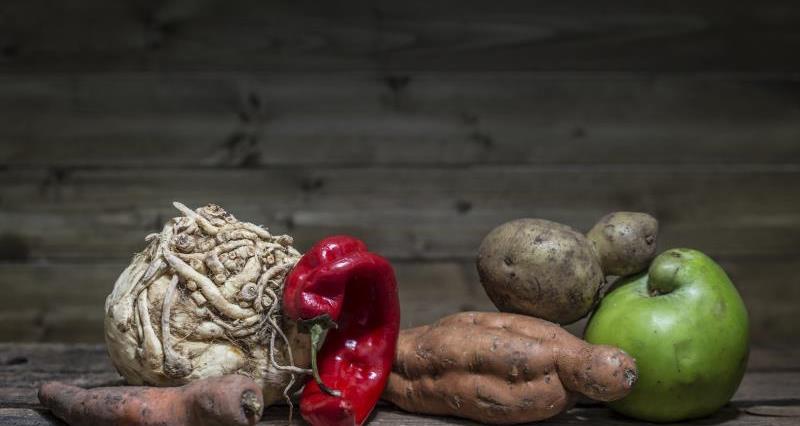The report states that more than 50 million tonnes of fruit and vegetables grown across Europe are discarded each year, largely because they do not meet supermarkets and consumers’ standards of how they should look
NFU director of policy Andrew Clark said: “It is important that retail buyers apply flexibility to food specifications and promotions in order to utilise as much of the crop as possible, and to manage fluctuations in supply and demand.
“It costs just as much to produce wonky fruit and veg as a perfect one, so special ranges that utilise this crop can be part of the solution to address the food waste challenge, especially during the dry hot summer we're experiencing.
“Flexible solutions avoid produce being wasted and enables more of what is perfectly edible food to be sold to the British public. These solutions are most successful when farmers and retailers have an open and transparent relationship.”
Food waste and the media
The issue of food waste can be an emotive one, and is often picked up in the media. Food waste occurs throughout the whole food supply chain, and although it is a significant problem at the post-retail end of the chain (i.e. household and hospitality sector food waste), it is documented that there is a degree of wastage throughout the chain from primary production through distribution, retail and consumers.
Food waste has a negative financial and environmental impact on all aspects of the supply chain. Food security and sustainable intensification are of extreme importance to UK farming and our industry is striving hard to improve in both of these areas. Food waste is costly for the entire food supply chain especially taking into account growing consumer demands and increased challenges of managing volatility.
The facts
One of the biggest difficulties is getting hold of accurate figures measuring the extent of food waste, although some attempts have been made to estimate the scale of the problem. Food waste is a priority objective for WRAP (The Waste and Resources Action Programme). WRAP has produced some of the most comprehensive assessments of the scale of the problem and potential solutions. WRAP estimate that total UK post farm-gate food and drink waste is around 10 million tonnes per year, 60% of which could have been avoided. This has a value of over £17 billion a year, and is associated with around 20 million tonnes of greenhouse gas (GHG) emissions.
Examples of retailer action include
Lidl
Lidl UK has announced that it will introduce ‘Too Good to Waste’ fruit and vegetable boxes, containing items that are no longer considered at their perfect best, but are still perfectly good to eat.
Aldi
Aldi’s Everyday Essentials range includes wonky veg sold at a cheaper price than Aldi’s other core range fruit and vegetable products.
Morrisons
Morrisons is committed to buying whole crops from farmers across the UK and introduced its Wonky range, including wonky selection boxes.
Tesco
Tesco’s perfectly Imperfect’ range offers customers the opportunity to buy fruit and veg that was previously outside of its specifications.
Asda
The supermarket introduced its Wonky Veg range two years ago and has since sold 1,000 tonnes of carrots.
More links:
Visit our dedicated Food Chain area to see how the NFU is working with retailers on issues affecting members.
